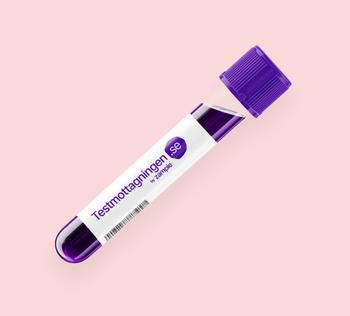Quick version
Why is the immune system weaker during autumn and winter?
During autumn and winter, when sunlight decreases, the body produces less Vitamin D, which is one of the immune system’s cornerstones. We also spend more time indoors, increasing the risk of virus transmission, while the dry air can irritate the mucous membranes. These factors make the immune system work harder during the second half of the year.
Nutrition that strengthens the immune system
Vitamin D – the sunshine vitamin
Vitamin D plays an essential role in immune system function. During the winter months, the sun’s rays are not strong enough for the body to produce sufficient vitamin D, and many people in Sweden suffer from a deficiency. To replenish your stores, eat plenty of fatty fish, eggs, and vitamin D-fortified dairy products. A Vitamin D test can show whether your levels are low.
Strengthening antioxidants and minerals
- Vitamin C – strengthens the immune system, helps the body absorb iron from food, and contributes to collagen formation. Citrus fruits, bell peppers, and berries are rich in vitamin C.
- Zinc – supports wound healing and boosts immune defense. Foods like meat, nuts, and whole grains contain zinc. A zinc test can reveal your levels.
- Selenium – protects cells from free radical damage (oxidation). Found in fish, eggs, and Brazil nuts.
The gut microbiota and immune health
A large part of the body’s immune system is located in the gut, which is why maintaining a balanced gut flora is key to defending against infections. To support gut health, eat a fiber-rich diet with plenty of vegetables, fruits, legumes, and whole grains. Fermented foods like yogurt and sauerkraut contain active bacterial cultures that are beneficial for the gut.
A healthy lifestyle strengthens the immune system
Sleep and recovery
While we sleep, the body recovers and the immune system is active. To maintain good sleep health, aim for 7–9 hours of sleep per night and keep a consistent routine.
Physical activity
Regular exercise and movement promote better blood circulation, helping immune cells function effectively. Walking, yoga, or light strength training go a long way toward boosting the immune system.
Stress and the immune system
Long-term stress can negatively affect the immune system. If you’re feeling stressed, try relaxation techniques, mindfulness, or short breaks throughout the day to lower stress levels.
Indoor environment and hygiene
Your indoor environment affects how easily viruses spread. Air out rooms regularly, maintain moderate humidity levels, and practice good hand hygiene.
Can I prevent infections?
If you belong to a risk group for influenza, you should get vaccinated against both seasonal flu and COVID-19. Washing your hands frequently, eating nutrient-rich foods, and getting adequate rest are also important for preventing viral illnesses.
If you experience recurring colds, fatigue, or suspect a nutritional deficiency, a health check can provide insight into your overall health before winter.
What can I do daily to strengthen my immune system?
- Eat colorful vegetables every day.
- Move your body daily, preferably in daylight.
- Prioritize sleep and recovery.
- Wash your hands regularly.
- Check your vitamin D levels in the autumn.
Take care of your immune system ahead of winter – small, consistent habits make a big difference to your health.

























